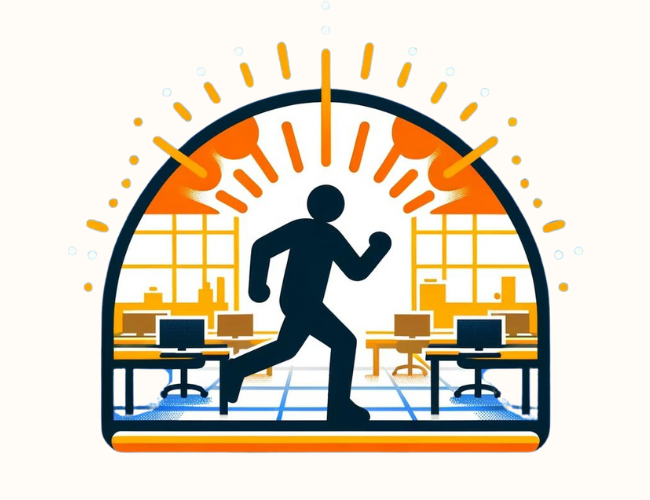As companies look at ways to encourage employees toward holistic well-being, it’s easy to focus on things like physical activity through gym memberships and fitness challenges. Even companies that incorporate creative wellness strategies like company gardens and financial education may not realize the importance of one foundational health issue: sleep.
Sleep insufficiency has become a public health concern, according to the Centers of Disease Control and Prevention. Between 1942 and 2013, the average hours of sleep per night fell from 7.9 to just 6.8. Today, one-third of U.S. adults report that they usually get less than the recommended amount of sleep every night.
Poor sleep is linked to a host of health issues, including diabetes, heart disease, obesity, and depression. One study tracked the lifestyles of 60,000 women for sixteen years. None of the women were obese at the beginning of the study. At the end of the study, those women who reported sleeping five hours or less per night had a 15% higher risk of becoming obese than women who slept seven or more hours per night.
Employers should also be concerned about the safety issues and economic losses connected to poor sleep. In addition to “drowsy driving,” which causes approximately 20% of all serious car accident injuries, many workplace accidents can also be attributed to employee sleepiness on the job. Several major workplace catastrophes have been linked to sleep-deprived workers, including the Bophal, India, chemical plant tragedy, the Chernobyl and Three Mile Island nuclear reactor meltdowns, and the grounding of the Exxon Valdez oil tanker.
A 2016 Rand Corporation study estimated annual U. S. economic losses due to insufficient sleep at $411 billion. In addition, U.S. employers lose about 1.23 million workdays to insufficient sleep.
Good Sleep, Better Health
The effects of insufficient sleep are well-documented, but what about the effects of good sleep? How do companies benefit when employees get good sleep?
- Sleep leads to better cognitive function: Chronic sleep deprivation can result in impaired cognitive function, which can lead to poor performance or even accidents. Employees who get an optimal amount of sleep are more productive and also have better relationships with co-workers.
- Sleep restores functions in the brain and body: A study conducted by Boston University and published in the journal Science captured images of cerebrospinal fluid (CSF) “washing” the brain clean of metabolic waste. In addition, the body performs repairs to blood vessels, muscles, bones, and the immune system during sleep.
- People who sleep adequately have lower absenteeism/presenteeism: Aside from being rested enough to go to work and fully engaged, employees who get enough sleep reduce their risks chronic illnesses, such as Type 2 diabetes and heart disease, that result in time off work.
Encouraging Good Sleep
Healthy sleep may be one of the most difficult health habits for an employer to confront. After all, sleep largely takes place on personal time.
Some companies are finding ways to encourage their employees to get better sleep. Several companies now provide nap rooms. Naps have been shown to increase cognitive function and mental acuity, and one study found that people who nap one to two times per week had a 48% lower risk of having a heart attack, stroke, or heart failure. Plus, nap rooms area a unique employee benefit or perk that helps employers differentiate themselves from other companies when recruiting and retaining top talent.
Companies can also encourage more physical activity. One recent study found a link between walking 7,000 steps per day and better sleep. The steps did not have to be a result of planned exercise; rather, simply increasing normal activity seemed to be the key.
Better education about the importance of sleep can also help. Company sleep challenges, such as Wellable’s Sleep Tight Tonight Challenge, can offer education and help employees make small changes to sleep hygiene.
Finally, employers should recognize that not all sleep problems are due to poor habits. Sleep issues such as insomnia, apnea, and restless leg syndrome are medical issues that need professional attention. By encouraging employees to get help for more complicated sleep problems, employers communicate the value of both a good night’s sleep and overall employee health.












